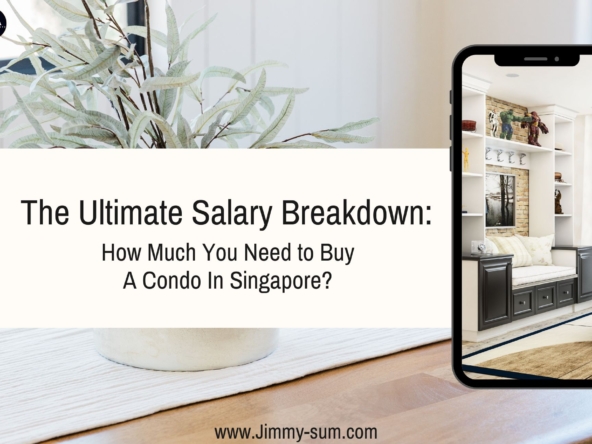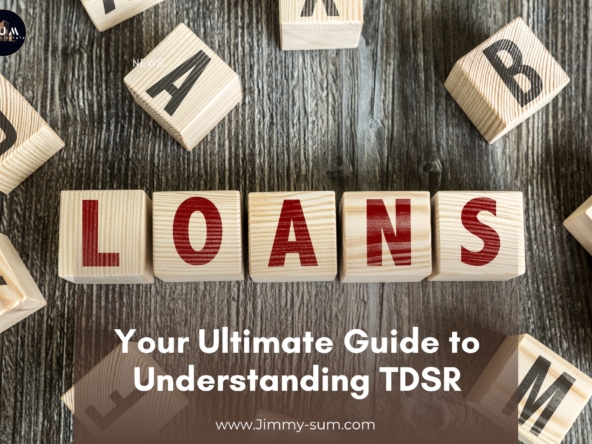The US Federal Reserve has steadily raised interest rates for many years. Most recently, they’ve announced a fourth consecutive 0.75-point rate hike, bringing mortgage interest rates up to 3.75% – 4%. As such, local banks have adjusted their loan packages accordingly.
Given current trends and expectations that interest rates will continue to rise, many HDB homeowners are wondering whether an HDB loan or a bank loan would be the better option. Also, the terms and operating policies of the two loan options differ significantly, making it difficult to determine which would be more beneficial.
To help you make an informed decision, we’ll compare HDB loan vs. bank loan so that you can decide which option best suits your needs and budget. Let’s get started.
What Is HDB Loan?
If you purchase an HDB flat, you may be eligible for an HDB loan. The Housing and Development Board (HDB) gives this loan to you, which will not be applicable if you plan to buy a private residence. Here are some quick features:
- Interest Rate: With an HDB loan, the interest is 2.6% per annum (expected at 0.1% above the interest rate of 2.5% of the CPF Ordinary Account).
- Loan-to-Value Limit: When making a flat purchase, you can use up to 80% of the purchase price as your loan for Build-to-Order, Sale of Balance flats, and resale HDB. If the youngest buyer doesn’t cover the remaining flat lease up to age 95 at the point of application, then the LTV will be pro-rated from a maximum of 80%.
- Downpayment: You can make up to 20%, which can be paid either in cash, CPF, or a combination of both.
- Early Repayment: There will not be any penalty for early repayment on an HDB loan.
- Couples Combined Income: For couples, the combined income has to be lower than S$14,000 to be eligible for an HDB loan.
Several factors will determine the amount of HDB loan you are eligible for, such as your age, monthly income, and overall financial status. If you purchase an uncompleted flat, like a Build-To-Order (BTO), directly from HDB, then HDB will review your finances before disbursement of the housing loan.
What Are Bank Loans for Housing?
To purchase a residential property in Singapore, you can take out a housing loan from any financial institution regulated by the Monetary Authority of Singapore. Here is a quick overview of what bank loans have to offer:
- Interest Rate: Bank loans usually come with variable interest rate packages.
- Loan-to-Value Limit (LTV): Bank loans allow you to borrow up to 75% of the property’s value.
- Downpayment: At least 5% of the property must be paid using cash, and an additional 20% can be financed using cash and/or your CPF OA.
- Early Repayment Penalty: Early repayment of loans may incur a penalty.
- Minimum Loan Amount Required: The amount required for the loan will depend on the property’s value and other factors.
Several bank loans are available, including fixed-rate packages, floating-rate packages, or a combination of both. The interest rates for these loans are usually linked to the SIBOR or Singapore Swap Offer Rate or based on the Fixed Deposit Home Rate (FHR).
Eligibility Criteria
For those planning to purchase a private property, such as a condo or landed home, an HDB loan is not available, and the only option is to apply for a bank loan. On the other hand, if you’re seeking to buy an HDB flat (whether it’s a new or resale unit), you can be eligible. The requirements include the following:
HDB Loan Eligibility
- Citizenship: The buyers must include at least one Singapore Citizen.
- Past Home Loan: The applicants must not have taken two or more HDB housing loans and cannot own a private residence. This includes HUDC flats, inheritance under a will, properties acquired by gift, and any property owned as a nominee.
- Income Ceiling: For families, the income cannot exceed $14,000. For extended families, it should be at most $21,000. Singles buying a 5-room or smaller flat in a non-mature estate are limited to an income of no more than $7,000.
- Property Ownership: There must be no other property owned locally or overseas and no dispositions of private residential property within the last 30 months preceding the application for an HDB Loan Eligibility letter. Additionally, you may own up to 1 market, hawker stall, or commercial property. If owning one of these, it must be used as a business establishment with no other sources of income.
Bank Loan Eligibility
You don’t need to meet as stringent as HDB loans to apply for bank loans. Banks generally assess your financial health and credit score before granting a loan. Also, you can opt for a longer loan tenure with a bank mortgage. Banks typically require you to have some form of income, such as employment or self-employed income. Your eligibility also depends on your credit score, loan amount, and total debt ratio.
Which One Should You Pick?
After going through both loans’ overview and eligibility criteria, the big question comes: which one should you pick? It would help if you considered several factors, like:
1. LTV And Long Run Savings
For HDB Housing Loans, the Loan-To-Value Ratio (LTV) has been adjusted to 80% following September 2022 Singapore property cooling measures, which means a lower maximum amount can be borrowed. However, this may not necessarily be beneficial for homebuyers in the long run, as getting a bigger loan could mean more interest payments in total.
In contrast, bank loans offer a lower LTV of 75%, which may require a higher downpayment but could potentially result in more savings in the long run. Additionally, this lower limit isn’t subject to CPF balances as with HDB loans, so borrowers can avoid having their entire CPF OA balance wiped out.
2. Downpayment and Cash Flow
The downpayment requirements of HDB and bank loans differ significantly. For an HDB loan, the minimum downpayment is 20% which can be paid with CPF OA if you have enough savings. On the other hand, banks require a minimum 25% downpayment, at least 5% of which must be in cash. The remaining 20% can be paid using cash and or your CPF. As such, you may need to put more money down upfront if you opt for a bank loan, which can be difficult for cash flow.
3. Interest Rates
Prevailing HDB loan interest rates have remained the same since July 1999. They are expected at +0.1% of the OA rate of the Central Provident Fund (based on the average interest rate offered by major local banks over three months, or a minimum of 2.5%). This makes HDB loans attractive to those who prefer more predictable monthly payments, as the interest rate is not subject to market fluctuations.
Conversely, bank loans are the option for those with a higher risk appetite and who wish to take advantage of changing interest rates. Banks offer floating-rate packages (which move with the benchmark rate) and packages with fixed rates (which stay in place for some time). DBS offers a hybrid package that lets you split your mortgage amount between fixed and floating package rates.
Although the fixed interest rate is more stable, they often come at a premium compared to variable rate packages – and after the lock-in period, you will be subject to the market once again (which usually translates into higher bank loan interest rates).
4. Refinancing
Switching from an HDB loan to a bank one is possible, but the reverse is not. If you already have a bank loan, you can reprice your package from the same bank or refinance with another lender for a more favorable rate. Also, the interest rates on HDB loans are typically more stable than those of banks.
Although refinancing can help you save money and reduce your repayment period, there are costs, such as legal fees and valuation fees It would help if you also considered the long-term implications of changing your loan terms before making a decision.
5. Loan Repayment and Penalties
Home loans are long-term commitments, and it’s important to consider plans when making your decision. HDB loans usually provide more flexibility, allowing you to pay off as much of the loan without penalty if you come across a financial windfall. If for any reason, you choose to switch over to a bank loan after a few years, HDB will not impose any penalty.
In the event of late payments, HDB has a fee of 7.5% p.a., but you can appeal your case for leniency. However, if you decide to make early repayments on a bank loan within the lock-in period, you may be subject to 1.5% to 1.75% penalty fees. Bank’s late repayment fees are also more difficult to waive or reduce.
Banks may attempt to restructure your loan with a debt consolidation plan if you cannot make mortgage payments. If that does not resolve the issue, they can repossess your property and put it up for a mortgagee sale to recover what you owe.
Bringing It All Together
Overall, homebuyers need to weigh the pros and cons of HDB and bank loans when deciding what type of loan best suits their financial needs. A key deciding factor in this can be whether you are motivated by cost savings or are willing to pay extra to avoid the hassle. HDB loans have a stable 2.6% interest rate, making long-term planning easier, and require a smaller downpayment. However, bank loans may have more competitive interest rates if you can afford them. Whatever your decision is, consider how rising interest rates will affect your monthly mortgage payments in the long run.
Jimmy Sum is a professional real estate agent in the Singapore property market with more than 10 years of experience. If you need any professional advice on your asset progression journey or need some assistance in selling, buying or renting your property, you can feel free to send him an Whatsapp at +65 90918188.




